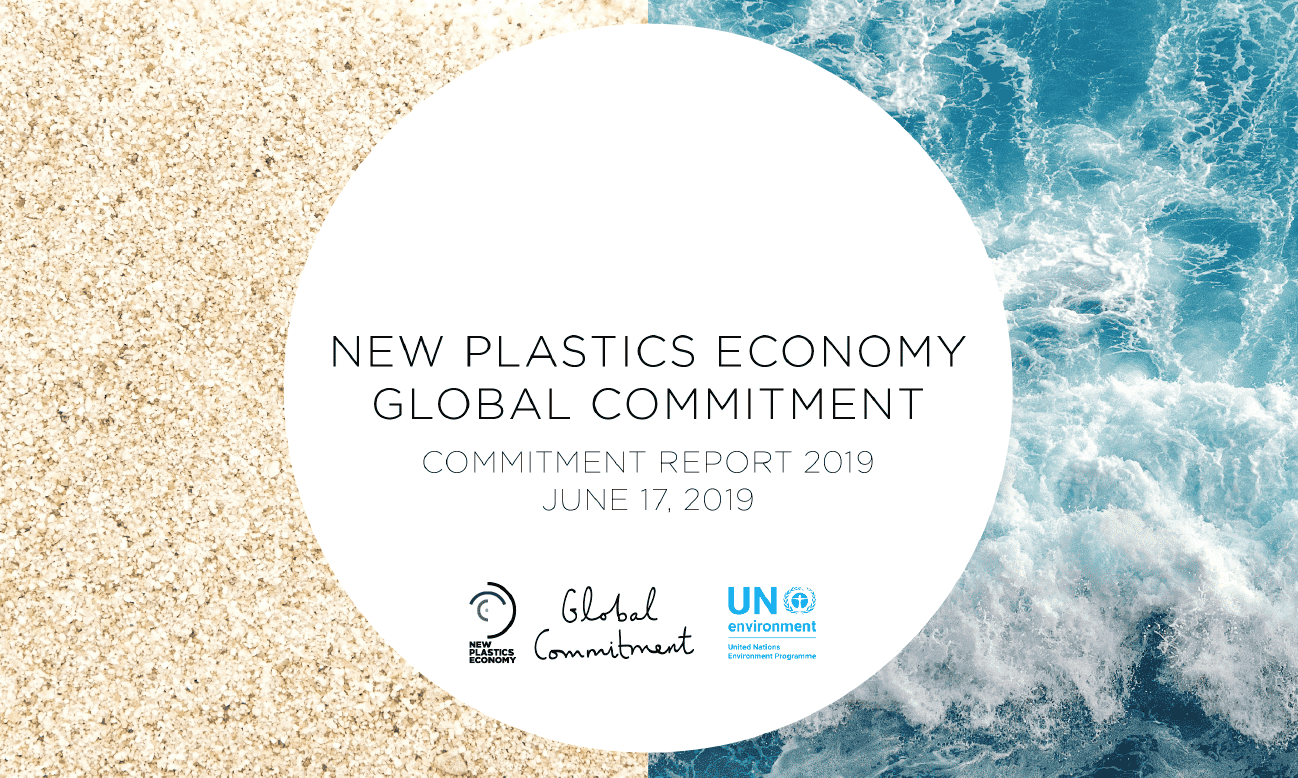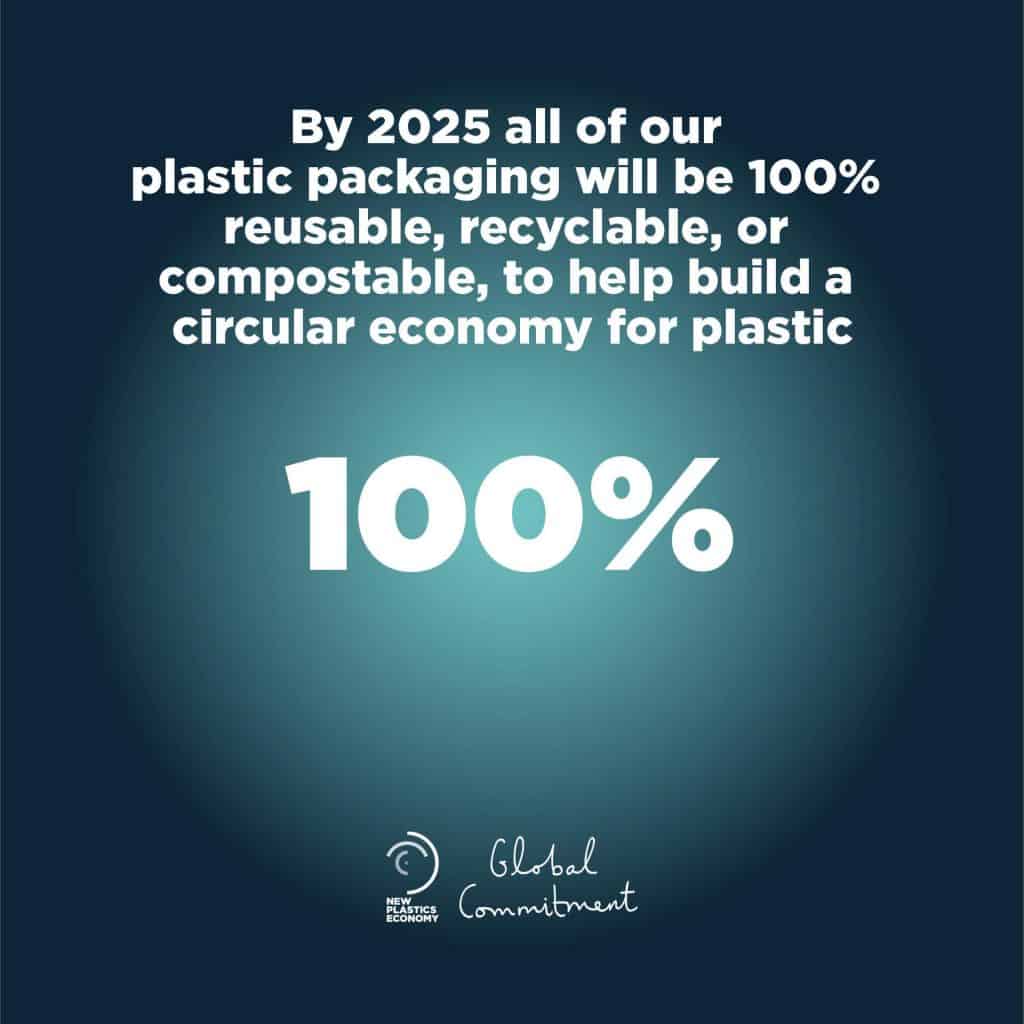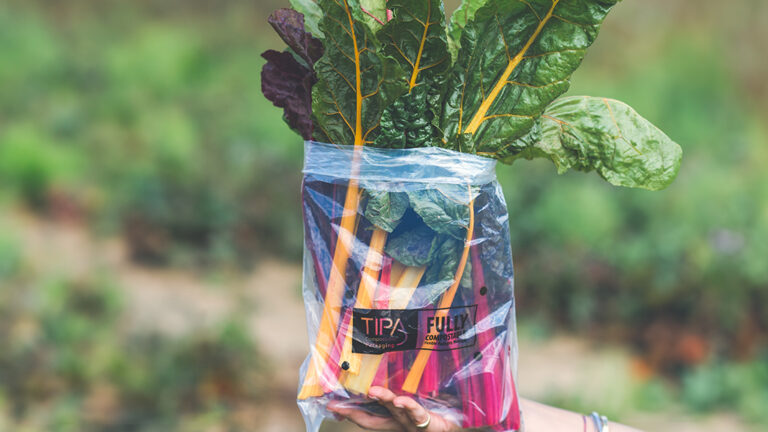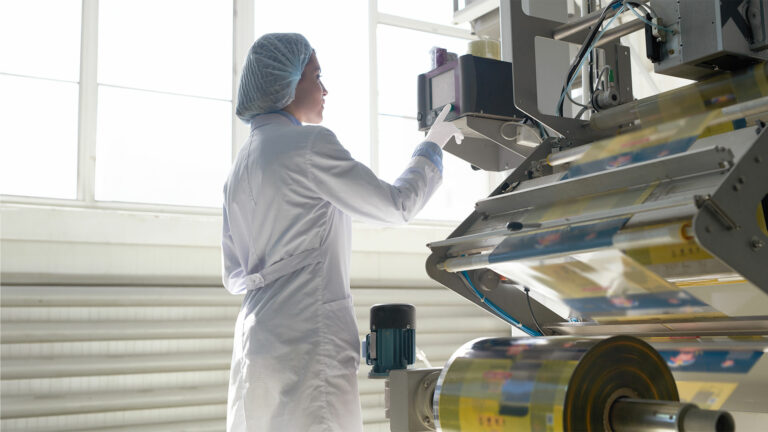Our planet needs change, and corporations are committing themselves to new standards. Plastic should never become waste or pollution; that’s why TIPA is pleased to be a signatory to the New Plastics Economy Global Commitment.
New report reveals progress
The positive scale of global efforts to prevent plastic pollution has been revealed in a new report published by the Ellen MacArthur Foundation, in collaboration with the UN Environment Program (UNEP). This new annual report is being released 12 months after the launch of the New Plastics Economy Global Commitment, which sets out a circular economy vision for plastic.
Global Commitment
Launched in October 2018, the Global Commitment now has over 400 organizations committed to eliminating problematic and unnecessary plastic packaging, and undertaking innovations so that all plastic packaging is 100 percent reusable, recyclable, or compostable, as well as safely and easily circulated without becoming waste or pollution.
This report aims to provide an unprecedented level of transparency on how almost 200 businesses and governments are changing their plastic production and plastic use to achieve this. It shows promising early progress.
“Around the world people are calling for businesses and governments to take action to stop plastic pollution. Leading businesses and governments stepped forward by signing the Global Commitment, and we can now see promising early progress. This includes major commitments to reduce the use of virgin plastic, the introduction of reuse pilot projects, and unprecedented demand for recycled plastic in packaging” said, Sander Defruyt, New Plastics Economy lead at the Ellen MacArthur Foundation. “But there is a long way to go and it is crucial these efforts are accelerated and scaled, and more businesses and governments take action to eliminate plastic pollution at the source.”

Examples of progress
Examples of corporate progress include Unilever, which has announced it will reduce its use of virgin plastic in packaging by 50 per cent, Mars Incorporated, which said it will make reductions of 25 per cent by 2025, and PepsiCo, which aims to reduce the use of virgin plastic in its beverage business by 20 per cent by 2025.
Some of the most commonly identified problematic plastic items and materials are being eliminated at scale. For example, around 70 per cent of relevant signatories are eliminating single-use straws, carrier bags and carbon black plastics, and around 80 per cent are eliminating PVC from their packaging.
Beyond bans, signatories including governments like Rwanda, the UK and Chile, and cities of Sao Paulo and Austin, to name a few, are putting in place a diverse set of policy measures ranging from public procurement and extended producer responsibility schemes to public awareness campaigns, fiscal measures, and incentives for research and development.
Examples of corporate progress include Unilever, which has announced it will reduce its use of virgin plastic in packaging by 50 per cent, Mars Incorporated, which said it will make reductions of 25 per cent by 2025, and PepsiCo, which aims to reduce the use of virgin plastic in its beverage business by 20 per cent by 2025.
100% reusable, recyclable or compostable by 2025
Analysis carried out for the report shows that on average 60 per cent of business signatories’ plastic packaging is reusable, recyclable or compostable today. Through the Global Commitment they have committed to make this 100 percent by 2025.
Packaged goods and retail signatories have pledged to increase recycled plastic in packaging more than five-fold, from four to 22 per cent, by 2025. The signatories’ total demand for recycled content in packaging by 2025 will be more than 5 million tons annually, equivalent to keeping 25 million barrels of oil in the ground every year.
Investment, innovation and transformation required
While significant investments are being made to achieve these targets, more major investment, innovation, and transformation programs need to be developed, and more businesses and governments are urged to join the Global Commitment to ensure impact can be made at scale.
Tackling plastic waste and pollution means moving beyond recycling and the elimination of only the most commonly identified problematic packaging. Through innovation, product and supply chain redesign, and new business models, companies may reduce their overall plastic packaging use, while unlocking new economic opportunities.
Unlocking new economic opportunities
“We’ve seen clients dramatically increase their market share by switching to compostable packaging,” said Daphna Nissenbaum, CEO and Co-Founder of TIPA.
“Leading brands like Bimbo, Waitrose, and Stella McCartney have adopted TIPA’s new material innovation because it gives them the ability to retain all the quality features they received from their former conventional packaging while breaking down fully in a sustainable end-of-life process,” She continued. “As more consumers demand brands with a sustainable ethos, more companies will prioritize sustainability as a path to market growth.”
“The kids are out on the streets demanding change. The price for not adopting alternatives is more expensive, and not just in dollars – it is costing the health of our planet’s ecosystems. This generation is setting new market standards, and those who refuse to adapt will lose their markets. I hope that governments everywhere push companies to innovate more in this area. Our planet needs change,” she concluded.
Next report
The New Plastics Economy will publish the next Global Commitment progress report in Autumn 2023, and every year following up to 2025.














